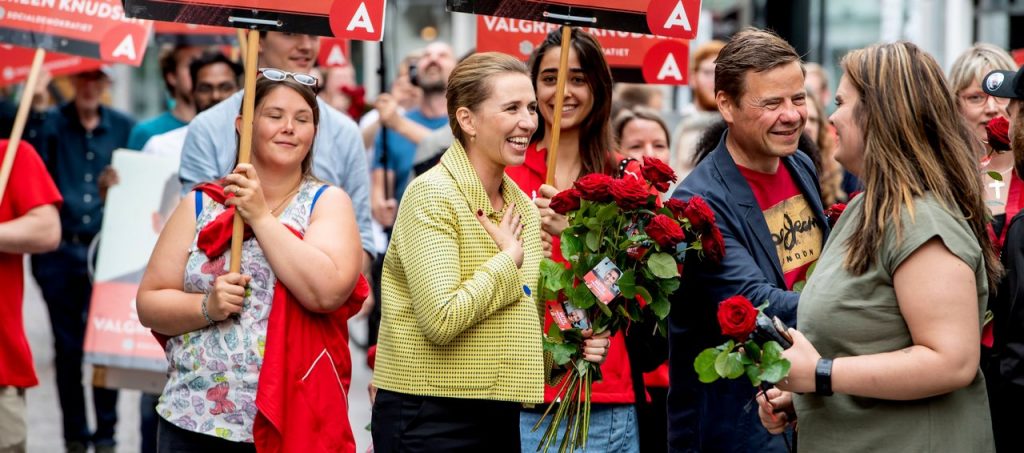Mette Frederiksen, the leader of Denmark’s center-left Socialist Democratic party, has announced that she will form a left-leaning, one-party minority government, making her the nation’s youngest-ever prime minister.
“It is with great pleasure I can announce that after three weeks of negotiations, we have a majority to form a new government,” the 41-year-old said Wednesday, according to Reuters.
Frederiksen’s Social Democrats were able to form the minority government after receiving backing from the Socialist People’s Party, the Red-Green Alliance, and the Social-Liberal Party, the news agency added.
Minority governments are common in Denmark and Frederiksen will rely on the three left and center-left parties to pass laws in parliament.
Denmark’s Social Democrats beat the three-party center-right bloc led by Lars Lokke Rasmussen of the Venstre party earlier in June after adopting a hardline stance on immigration during the election campaign, luring voters away from the right-wing populist Danish People’s Party (DPP). Frederiksen’s party won 48 seats in parliament, beating Venstre party’s by 43 seats.
Denmark will be the third Nordic country this year to form a leftist government after Social Democratic parties formed governments in Finland and Sweden earlier this year.

Under Frederiksen, Denmark’s Social Democrats supported some of the most aggressive anti-immigrant laws in Europe that were put forward by the current center-right government.
While immigration and the welfare state were key issues ahead of the election, climate change also punched through as the biggest concern among voters, a political analyst at the Politiken newspaper, previously said.
The new center-left government announced Wednesday morning that it would boost public spending and cut greenhouse emissions by 70% before 2030.
Frederiksen was due to meet Queen Margrethe II of Denmark on Wednesday afternoon in order for her to be formally appointed as Prime Minister. On Thursday Frederiksen was also expected to present the monarch to her new ministers, Reuters reported.
After four years in opposition, the resurgence of the Social Democrats has been credited to Frederiksen tacking left on socio-economic issues — by promising to boost welfare spending and tackle climate issues — while shifting right on immigration.
This legislation includes a controversial law banning face coverings, a moratorium on accepting a UN refugee resettlement quota, and plans for so-called “ghetto laws” targeting disadvantaged areas where more than half the inhabitants originate from non-Western countries.
Denmark’s election results marked a stunning collapse for the DPP, which swept into second place during the 2015 elections, and was credited with transforming Danish politics with its anti-establishment and anti-immigrant message over the last several decades.
“Many of these popular right voters, who have supported DPP for the last 20 years, are turning their backs on them,” Kasper M. Hansen, a political science professor at the University of Copenhagen, said earlier in June, referring to the voters flocking to the Social Democrats or to a new crop of smaller far-right parties.
“What we are witnessing here is a really interesting experiment for European center-left parties,” Madsen added.
 Alghadeer TV Alghadeer TV
Alghadeer TV Alghadeer TV
